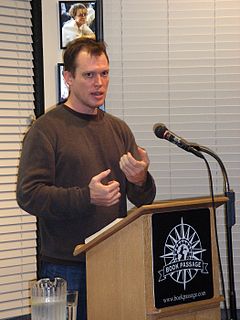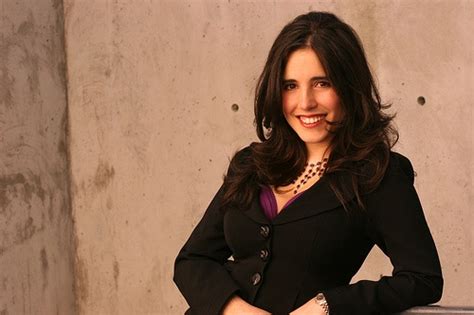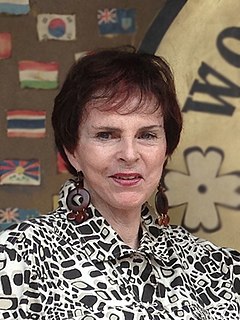Top 319 Worldview Quotes & Sayings - Page 6
Explore popular Worldview quotes.
Last updated on November 18, 2024.
I've been doing short-form writing for a decade, and six years ago I signed with an agent, and we've been working on figuring out what my book would be. I was always so embarrassed that it took me so long to figure it out, but I think, in retrospect, I just wasn't ready to write a book six years ago. I wasn't confident enough as a writer and I wasn't coherent enough in my worldview. It just took this long for me to be a mature enough writer and be ready to do it.
We, including many Christians, read the Bible through "eyes" conditioned by, and even accommodated to, modern Western culture plus the influences of messages and ideas from other cultures that are alien to the worldview of the biblical writers. Therefore, in order fully to understand the Bible and allow the Bible to absorb the world (rather than the world - culture - absorb the Bible) we must practice an "archaeology" of the biblical writers' implicit, assumed view of reality.
What I mean by context is worldview - having the ancient Israelite or first-century Jew in your head as you read. How would an ancient Israelite or first-century Jew read the Bible - what would they be thinking in terms of its meaning? The truth is that if we put one of those people into a small group Bible study and asked them what they thought about a given passage meant, their answer would be quite a bit different in many cases than anything the average Christian would think. They belonged to the world that produced the Bible, which is the context the Bible needs to be understood by.
The idea of self-effacement, the idea that you feel so powerless that the only tiny morsel of power you have is over your own ability to deny yourself food - that to me is a very profound and sad methodology and indicator of how powerless a lot of people feel in this world. That they will turn that onto themselves until they are physically smaller. I think it's affected my worldview a lot - just being sensitive and empathetic towards the ways people want to be small. I don't wish smallness for anyone.
Thus, the question of how and when to start vagabonding is not really a question at all. Vagabonding starts now. Even if the practical reality of travel is still months or years away, vagabonding begins the moment you stop making excuses, start saving money, and begin to look at maps with the narcotic tingle of possibility. From here, the reality of vagabonding comes into sharper focus as you adjust your worldview and begin to embrace the exhilarating uncertainty that true travel promises.
I think you should identify with your character, but plenty of people like themselves and hate themselves. You just have to find out what's truthful for the person you're playing. When people talk about that, I think what they're saying is that as an actor, as Peter, you don't want to make a judgment that comes from your worldview about the character. Your judgments should be coming from the place of the character, and within that space, sure, you could love or hate yourself or whatever you think is most appropriate.
There is no "scientific worldview" just as there is no uniform enterprise "science" - except in the minds of metaphysicians, school masters, and scientists blinded by the achievements of their own particular niche... There is no objective principle that could direct us away from the supermarket "religion" or the supermarket "art" toward the more modern, and much more expensive supermarket "science." Besides, the search for such guidance would be in conflict with the idea of individual responsibility which allegedly is an important ingredient of a "rational" or scientific age.
For a long time, early industrializing countries were absorptive. They were endlessly able to absorb new labor inputs to keep expanding. This was both an economics and a worldview. Here in the United States, we have the Statue of Liberty sitting in the harbor in New York, which says in huge letters, We stand for absorptive capital. A poetic version: "Give me your tired, your poor, your huddled masses." But what it means is, Come here, we'll absorb you. We absorb these inputs and add them to our growing economy, and we manage this with liberal democracy.
The great Sufi poet and philosopher Rumi once advised his students to write down the three things they most wanted in life. If any item on the list clashes with any other item, Rumi warned, you are destined for unhappiness. Better to live a life of single-pointed focus, he taught. But what about the benefits of living harmoniously among extremes? What if you could somehow create an expansive enough life that you could synchronize seemingly incongruous opposites into a worldview that excludes nothing?
I wrote a letter to the magazine [Time magazine] pointing out that [Richard] Corliss's comparison of Christopher Lee's Saruman to Osama Bin Laden, and the vastly outnumbered defenders of Helm's Deep united against the Orcs to the "Coalition of the Willing" fighting the good fight against Muslim hordes, displayed the simplistic, xenophobic, and arrogant worldview that makes the government of the United States feared and mistrusted around the world. The editors claimed they had no space to print my brief letter, which I felt was dishonest and cowardly.
[Trump's worldview states] that, for example, women are incompetent as compared to men in business settings. That women in general are intellectually inferior and have to make up for that by using their sexuality to get ahead. That women of color are angry, irrational, lazy, and always ready to get into a fight for no reason. That men in the workplace can say incredibly racist and sexist things, and as long as they make more money than their competitors, the racist and sexist things they say and do are totally acceptable.
The ranks of educated professional swelled as more Americans went to college and more Americans sort of adopted a more cosmopolitan lifestyle and worldview. And as the Democrats were looking for an alternative to the unions who no longer seemed like a large enough base for the party, they found the educated who veered more toward a progressive cultural outlook, who may have had - may have been working in the financial sector, in entertainment, in media, in universities. That became really the rank and file of the Democratic Party over a long period of time.
War is a great destroyer. And human history has arrived at a pivotal moment. We can choose a path built on cooperation, where our caring and sharing side uplifts us, or we can continue to embrace a worldview where domination using violence imprisons us in cycles of killing and destruction. I'm a biologist, and war is not genetically fixed. War is a cultural invention. It's time to end this abomination, and this World Beyond War movement is uniquely focused on unifying the human community to create one of the biggest revolutions in history. I'm in. Join us!
I would say the only one person I know of who kind of combines the elements that my father brought to the table in terms of affecting the public discourse would be Oliver Stone. His combination of academic brilliance and real life experience and just understanding people I think is what makes him such a great storyteller, but also he cares. He is interested. He meets somebody and he listens to them. He has some questions. He wants to know what they're about. And as a result I think his worldview is much more complex and whole and most of the other.
People take it for granted that the physical world is both ordered and intelligible. The underlying order in nature - the laws of physics - are simply accepted as given, as brute facts. Nobody asks where they came from; at least not in polite company. However, even the most atheistic scientist accepts as an act of faith that the universe is not absurd, that there is a rational basis to physical existence manifested as law-like order in nature that is at least partly comprehensible to us. So science can proceed only if the scientist adopts an essentially theological worldview.
Animism is not a belief system, but a worldview: The world is a sacred place and we are part of it. The factuality of this statement is not the issue. To say that the world is a sacred place is to make a statement about values, not facts. It’s a statement about what you mean by ‘sacred,’ just as ‘Money can’t buy happiness’ is a statement about what you mean by ‘happiness.’ To put it all very simply, animism isn’t a belief system, it’s a value system.
I feel connected with people because of their sense of humor, worldview, and what they think and feel about certain existential issues (things not affected, in my view, by if someone rides a horse or drives a car or talks only IRL or only by typing), not how old they are, what they use to convey what they think and feel about certain existential issues, or if we have both watched the same TV shows or looked at the same websites.
It's no understatement that the church has done a poor job in teaching our young people that reason and faith are not opposites, and that atheists are far from being on the side of reason. You can find on our website a chart which I use to demonstrate the various worldviews work out, and which one, Christianity, is rational. Many kids, however, who grow up huddled in a Christian environment find themselves in the university setting completely unequipped to defend the rationality of the Christian faith against the secular humanist worldview so prevalent on college campuses.
Most people will agree that they would like if they were treated by other people based on what they have concretely done in their life, not what other people have done, with their lives. Focusing on being a person instead of an Asian or an anything seems to promote a worldview that encourages people to treat others based on what each person has specifically done in their life, which seems like it would reduce such things as war, racism, unfairness, "hate crimes".

















